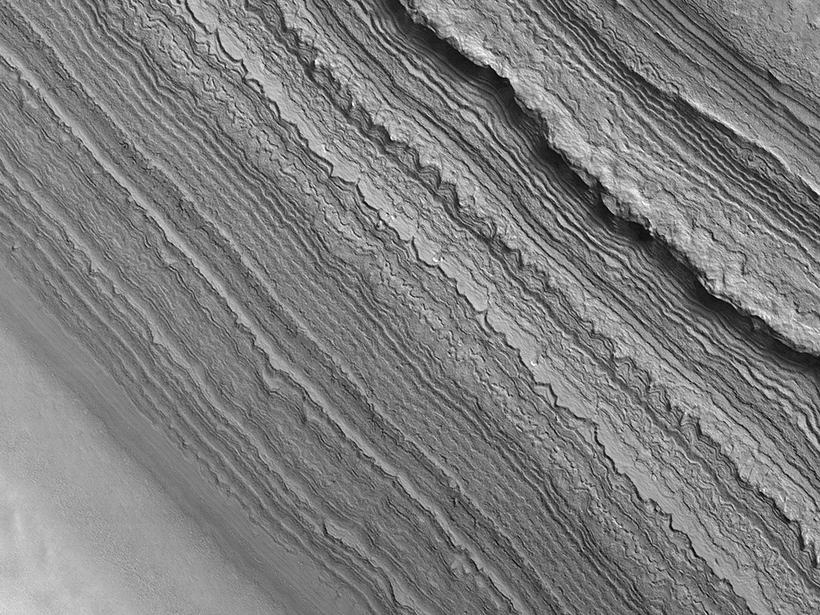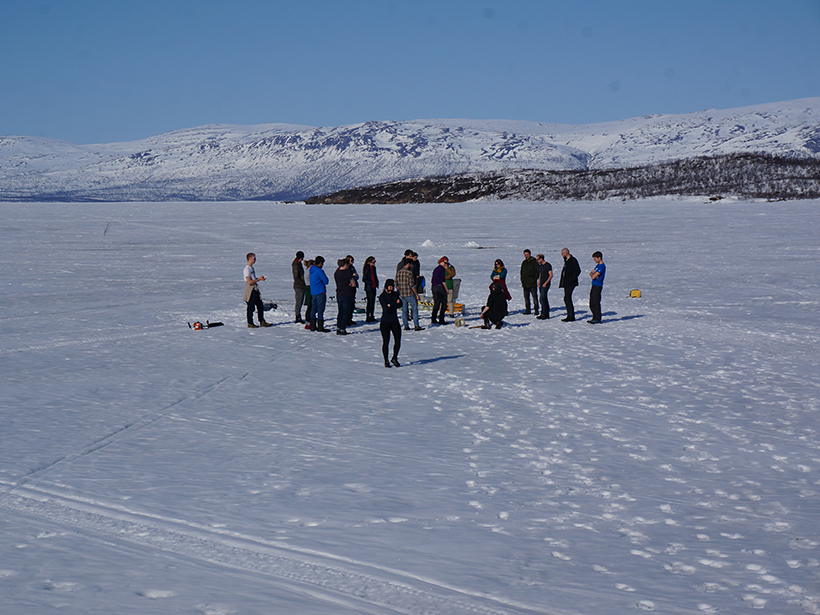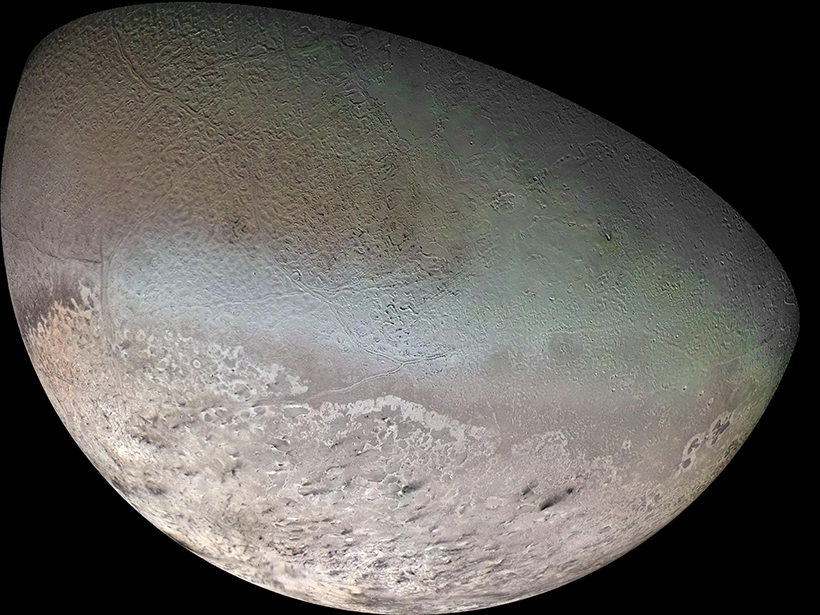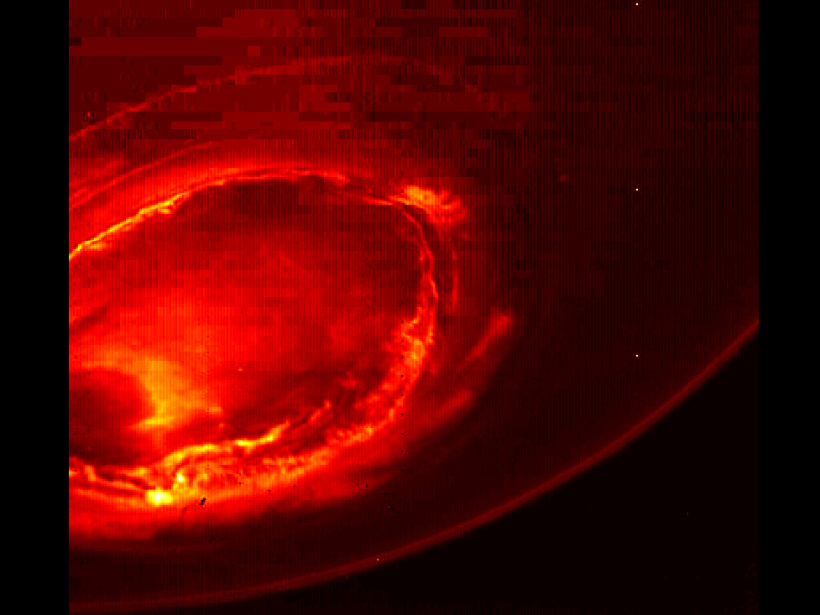Shallow Radar correlation of discrete units in one of the Red Planet’s largest ice reservoirs suggests that its material was emplaced as a single, regional deposit.
poles
Training Early-Career Polar Weather and Climate Researchers
Polar Prediction School; Abisko Scientific Research Station, Sweden, 17–27 April 2018
Sea Ice Loss Suppresses Some Effects of Climate Change
Polar amplification could counteract weather patterns shifting toward the poles.
Ocean Tides Affect Ice Loss from Large Polar Ice Sheets
A recent paper in Reviews of Geophysics discusses how ocean tides affect the motion of, and loss of ice from, the Antarctic and Greenland ice sheets.
Polar Satellite Launch Eases Concerns of Weather Data Gap
Joint Polar Satellite System-1 is the first in a series of planned polar-orbiting satellites to provide critical weather forecasting data. Two follow-on satellites, however, face uncertain funding.
Juno Gets Spectacular View of Jupiter’s Aurora
The NASA spacecraft has taken images of Jupiter’s powerful aurora dancing around its poles, revealing never-before-seen details in their structure.
Time, Tides, and Wandering Poles
Models of Neptune’s moon Triton reveal curious behavior in how tidal forces and mass anomalies cause the poles to reorient their location.
Mysterious Particle Beams Found over Jupiter’s Poles
The unexpected character of the beams, revealed by NASA’s Juno spacecraft, suggests that the processes that produce Jupiter’s auroras are unlike those on Earth.
Mars Polar Intrigue Spurs Multidisciplinary Collaboration
Sixth International Conference on Mars Polar Science and Exploration; Reykjavík, Iceland; 5–9 September 2016
Polar Interlopers in the Aurora
A new study suggests that poleward boundary intensifications in the aurora are caused by fast flows of plasma from the poles into the auroral oval.










